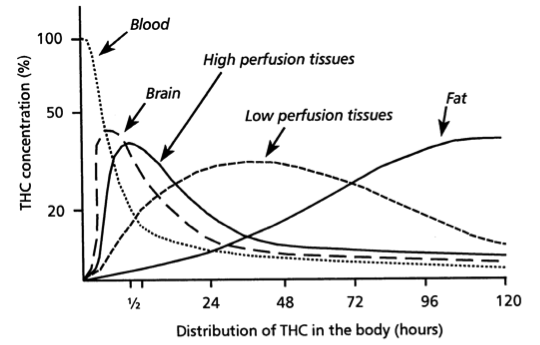kelper
.
The fact that cannabinoids remain in the blood stream for an extended period should cast fear into the hearts of all users who drive. If you get into an accident and are given a blood test it may show "intoxication" though you may not have smoked since last night. This I fear could lead to grave liability - both criminal and civil.
The only fair solution to this problem is a test that shows actual current "intoxication" or impairment - not indicators of residual, non-psychoactive cannabinoids. Is such a test being developed? Can it be developed given current technology? Would a spinal tap solve the problem ? Anyone have knowledge of this?
? Anyone have knowledge of this?
This is something I think about.
The only fair solution to this problem is a test that shows actual current "intoxication" or impairment - not indicators of residual, non-psychoactive cannabinoids. Is such a test being developed? Can it be developed given current technology? Would a spinal tap solve the problem
 ? Anyone have knowledge of this?
? Anyone have knowledge of this?This is something I think about.


